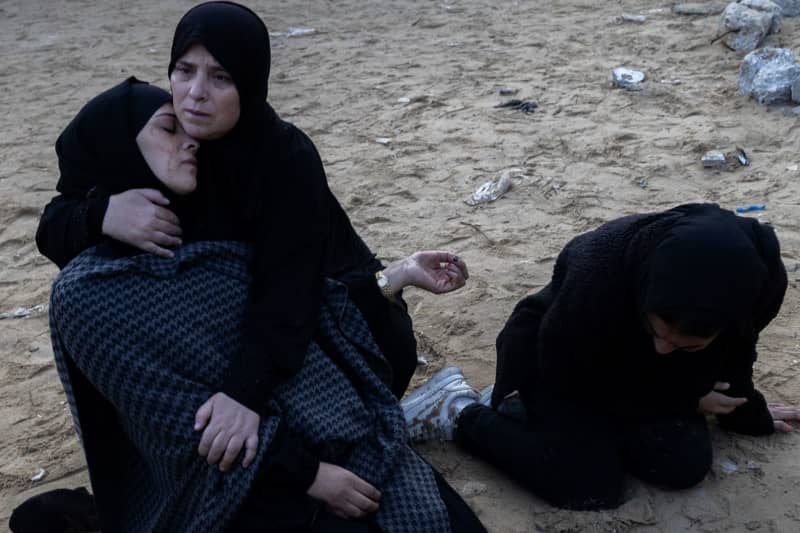On Thursday, a significant escalation in violence occurred in the Gaza Strip as Israeli military strikes led to a tragic loss of life. Reports from Palestinian medical sources indicated that at least 25 individuals were killed in the Nuseirat refugee district, which was heavily targeted in the Iranian aerial assault. The strikes reportedly focused on residential buildings, compounding the humanitarian crisis in the region. As the violence unfolded, the Palestinian news agency WAFA reported that many residents sustained injuries, underscoring the indiscriminate nature of the airstrikes in populated areas. Visual evidence shared on social media purportedly depicted medics transporting critically wounded individuals to hospitals, highlighting the dire situation faced by civilians caught in the conflict.
Additionally, WAFA reported that the total number of fatalities for the day reached 70 due to multiple Israeli strikes across various locations in Gaza. These attacks have raised serious concerns among humanitarian organizations regarding the protection of civilians during military operations. Witnesses described a scene of devastation, with buildings damaged and infrastructure destroyed, which exacerbates already pressing issues of access to healthcare and essential services. The use of air power in densely populated areas has drawn international condemnation, with calls for restraint and efforts to safeguard civilian lives amid ongoing hostilities.
The Israeli military has stated it is reviewing the reports of casualties and damage resulting from the airstrikes. However, the lack of independent verification of casualty numbers raises concerns about the accuracy and reliability of the information reported. This uncertainty complicates an already tense situation and hampers the efforts of humanitarian groups trying to assess needs on the ground. As violence continues, the prospect of immediate relief for the civilians impacted remains bleak, with the international community demanding accountability and protection for vulnerable populations.
The impact of these airstrikes extends far beyond immediate casualties; the consequences resonate through the societal fabric of Gaza. Families are mourning the loss of loved ones, and communities are left to grapple with the emotional and psychological toll of violence. The images of grieving relatives next to the bodies of their loved ones serve as haunting reminders of the human cost of the conflict. Local officials and community leaders have urgently called for international intervention to halt the violence and facilitate humanitarian assistance to those most affected by the ongoing military operations.
The cycle of retaliation and violence further complicates efforts to establish a lasting peace in the region. Despite repeated calls for negotiation and dialogue, the recent escalation in hostilities poses significant challenges to any potential reconciliation between opposing factions. With both sides entrenched in their positions and escalating military actions, the likelihood of a ceasefire seems increasingly remote. The international community continues to monitor the situation closely, with widespread calls for diplomatic engagement and pressure on both sides to resume negotiations aimed at de-escalating tensions.
In summary, the recent Israeli airstrikes in Gaza have resulted in a troubling surge in fatalities and injuries, primarily affecting civilians. Reports indicating the loss of at least 70 lives on one day alone reflect the heightened violence and desperation in the region. As calls for accountability and humanitarian access increase, the enduring conflict necessitates urgent dialogue and intervention to prevent further deterioration of the humanitarian situation and to forge a path toward a more peaceful future for the affected Palestinian communities.

